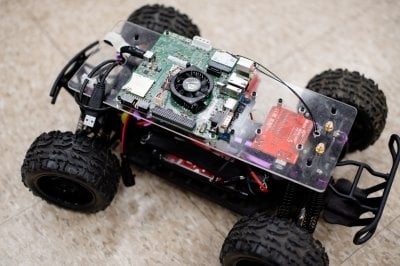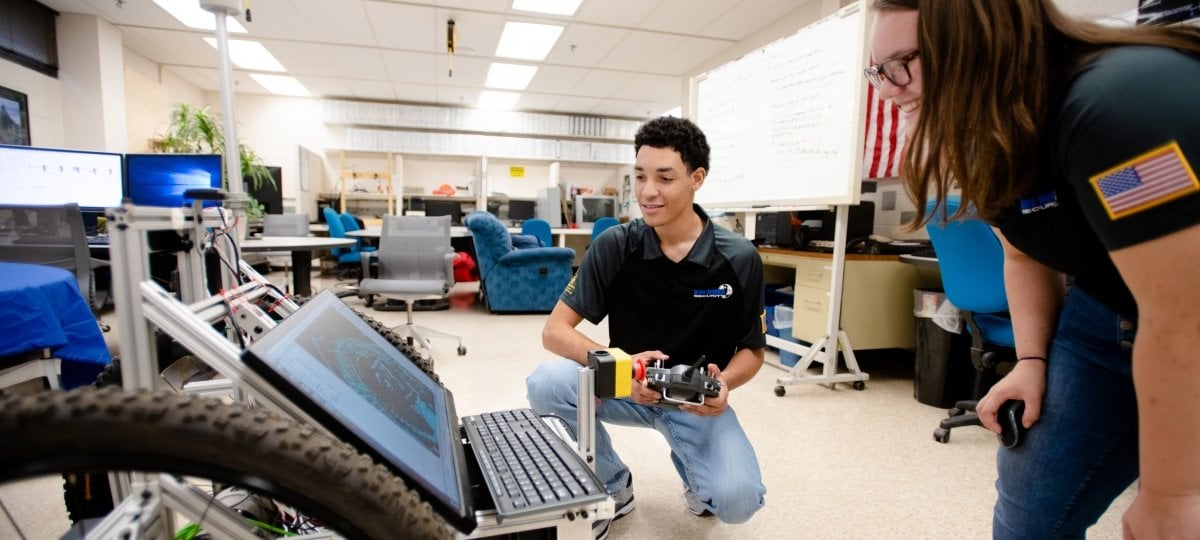Robotics engineering is a multidisciplinary field including electrical, mechanical, and computer engineering. It deals with designing, building, operating, and engineering robots and robotic systems based on theoretical understanding and practical application.
Robotics engineering covers a broad spectrum of tasks composed of conceptualizing designs, developing systems, and crafting operational algorithms. Robotics engineers play a critical role in every step of the lifecycle of robots and robotic systems. Common tasks include evaluating the performance of robotic systems, identifying areas for enhancement, and conducting rigorous testing protocols to ensure compliance with industry standards prior to widespread deployment and utilization.
Robotics engineering brings together creativity, technical know-how, and problem-solving skills. It's an exciting field that studies the latest and multidisciplinary engineering technology. Whether it's creating autonomous vehicles and drones, robotic systems that work with humans in manufacturing, or cyber-physical humanoid machines, robotics engineering sets the stage for a better tomorrow where humans and machines work together seamlessly.
What Do Robotics Engineers Do?
A robotics engineer develops robotic applications across many industries, including automotive, aerospace, manufacturing, defense, agriculture, and healthcare. Robotics engineers work on designing, building, and operating robots and robotic systems.
Designing
Robotics engineers conceptualize robots and robotic systems, create blueprints and schematics for robots, and determine their physical structure, components, and functionalities.
Building
Robotic engineers develop robots and robotic systems using a combination of mechanical, electrical, and computer engineering principles and technologies including selection and integration of the necessary components, such as sensors, actuators, motors, and controllers.

Programming
Robotics engineers write code to control the behavior and motions of robots and robotic systems. Programming languages, such as C++, Python, or specialized robot operating systems (ROS), are used in this task.
Testing
Robotic engineers run testing to confirm that robots and robotic systems operate correctly and safely as designed, built, and programmed by simulating possible application scenarios, troubleshooting technical issues, and optimizing algorithms.
Operating and Maintaining
Robotics engineers are also responsible for diagnosing problems, replacing faulty components, and implementing modifications to continuously enhance functionality throughout the lifecycle of robots and robotic systems.
What Careers are There in Robotics Engineering?
Many different types of robotics engineering are available for you to choose from, with specialties that fit an individual's interests and skills.
Robotics engineers work in every sector of industry including automotive, aerospace, manufacturing, defense, agriculture, and healthcare. Some examples include but are not limited to:
- Aerospace and space technology
- Automation
- Automotive
- Computer software development
- Consumer electronics
- Control systems
- Cybernetics
- General robotics
- Healthcare
- Intelligent systems and manufacturing
- Medical robotics
Robots and robotic systems are used in various fields, which creates numerous opportunities for robotics engineers.
What Skills Do Robotics Engineers Need?
Robotics engineers need to have keen interest in working principles of components and systems as they need to be able to design, build, test, and operate robots and robotic systems. It is required that robotics engineers understand electronics, mechanics, control, and software of robotic systems. Additionally, robotics engineers are required to have skills of strong mathematics in design and analysis, computer programming for controlling robotic systems in different environments, and problem solving in operating and troubleshooting robotic systems in real world applications. Creativity is highly valuable, as is the ability to communicate in written and oral forms.
How Much Do Robotics Engineers Earn?
Robotics engineers are well paid, with above-average earnings in each stage of their careers from an entry-level salary of $81,743 to the top 10 percent making $137,000 (Payscale).
| Mean Entry-Level Salary | Mean Annual Salary | Top 10 Percent | |
|---|---|---|---|
| $81,743 | $95,446 | $137,000 | |
|
Figures from payscale.com, accessed April 2025. |
|||
See additional engineering salary information.
The Future of Robotics Engineering
The future of robotics engineering has numerous possibilities that could impact industries, daily life, and society. One critical impact is on automation in manufacturing, mobility, and productivity. Another area for impact is collaborative robotics, where robots work alongside humans and assist human activities, leading to safer and more efficient workflows.
Recent advances in artificial intelligence (AI) and machine learning also drive progress in robotics engineering. AI enables robots and robotic systems to perceive and adapt to given environments and makes them highly intelligent and autonomous. Additionally, there is a growing interest in robots and robotic systems for applications in healthcare and smart home systems. Robotics engineering is anticipated to enhance productivity, improve quality of life, and address societal challenges in the future.


